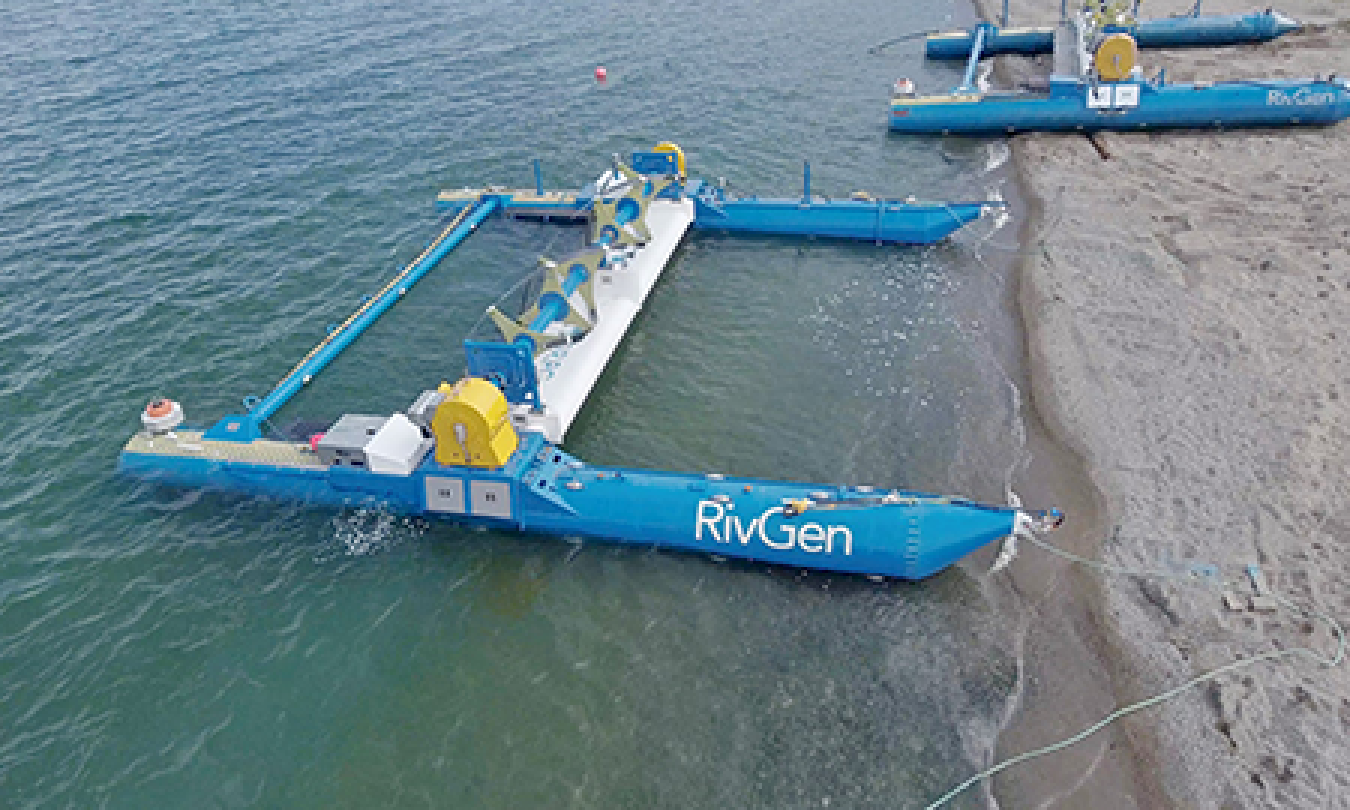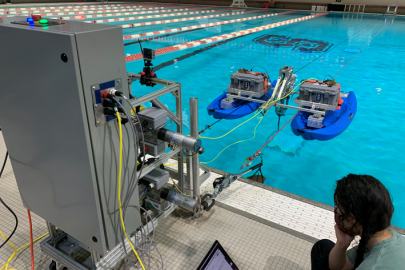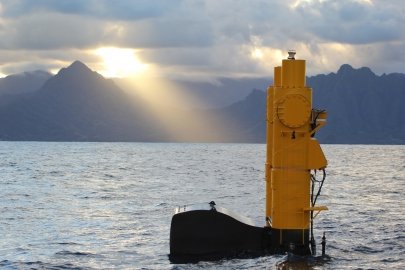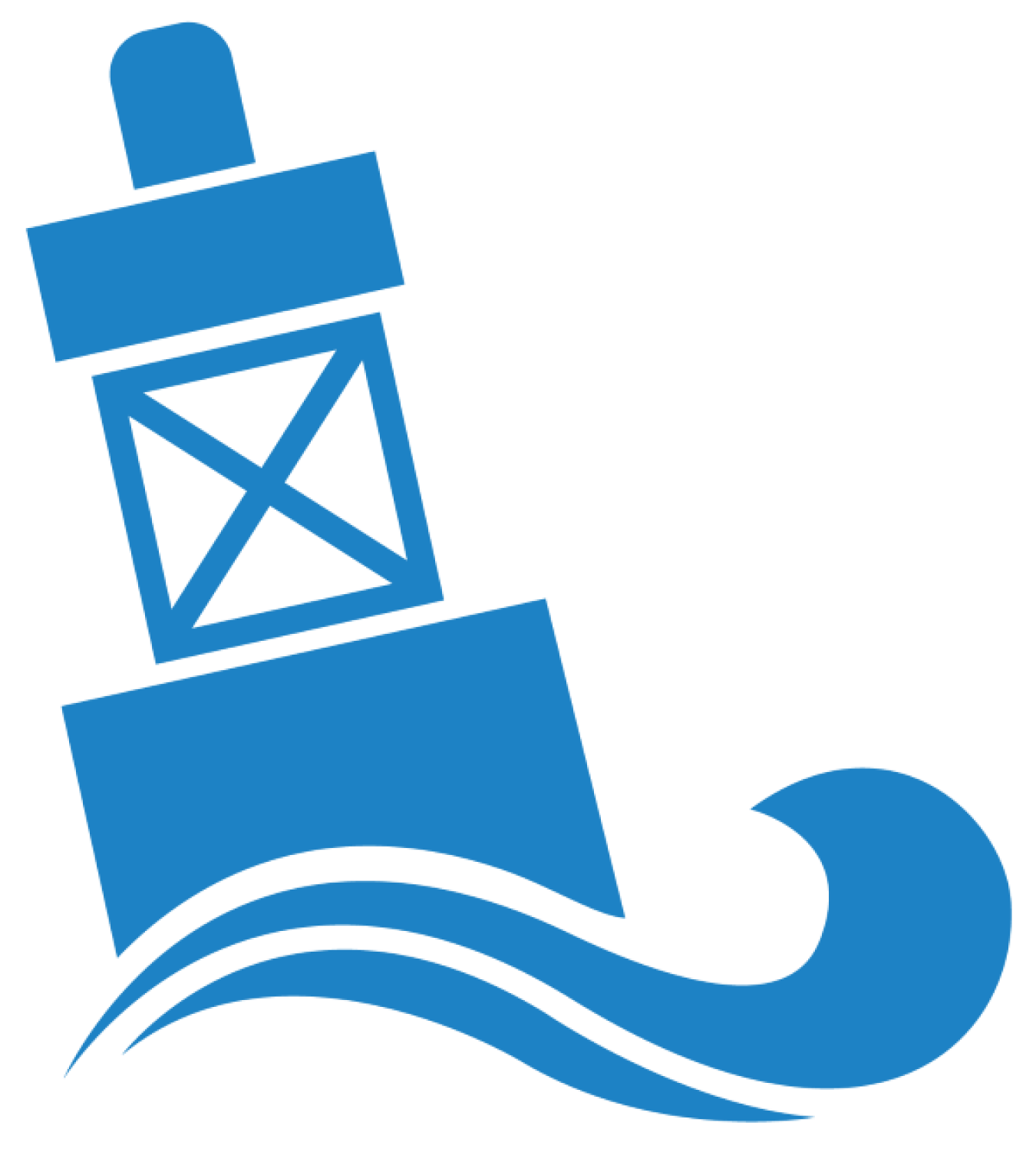Two deployed river hydrokinetic system help power Igiugig, Alaska, simultaneously reducing diesel dependence and supporting a local workforce.
Water Power Technologies Office
March 9, 2022Marine Energy Program
Technology-Specific System Design and Validation
Project Name: Next-Generation River Power System
Project Team: Igiugig Village Council (lead), Ocean Renewable Power Company, University of Alaska Fairbanks, National Renewable Energy Laboratory, and Pacific Northwest National Laboratory
Lead Recipient Location: Igiugig, Alaska

For the past 50 years, the Alaska Native village of Igiugig on the Kvichak River has depended on diesel fuel to power its homes and businesses, making the community dependent on a costly and sometimes unpredictable fuel delivery network. But in 2021, village members partnered with Maine-based Ocean Renewable Power Company to retrieve their first river energy device from the Kvichak River for maintenance and—with support from the U.S. Department of Energy’s (DOE) Office of Indian Energy—deployed a second device, marking important progress in the village’s goal to quit diesel by 2025.
These recent activities build on a partnership among DOE’s Water Power Technologies Office, the Igiugig Village Council, the state of Alaska, and Ocean Renewable Power Company to design and install a device that could generate energy from currents in the Kvichak River and help to reduce the village’s dependency on diesel fuel. As of 2021, this fully submerged 35-kilowatt river energy device, called the RivGen Power System, is the longest operating current energy converter in the United States and can provide nearly half of the village’s energy needs.

The retrieved RivGen 2.0 (foreground) and the ready-for-deployment RivGen 2.1. Eventually, RivGen 2.0 will be installed downstream of 2.1, providing even more energy to the local community. Photo courtesy of Igiugig Village Council.
Critical to the success of Igiugig’s transition to clean energy is the experience and training of local community members during every stage of the project, including deployment, operations, maintenance, and retrieval of the RivGen system, which is 51.5 feet long, 46.9 feet wide, and 11.5 feet tall. As soon as summer 2022, both RivGen systems will operate concurrently, providing even more energy to the local community.
This project is one of the first long-term operational deployments of a river current device in the United States and has resulted in numerous collaborations with national laboratories and universities, including the National Renewable Energy Laboratory, Pacific Northwest National Laboratory, University of Alaska Fairbanks, University of Washington, and University of Maine. Igiugig is also the first tribal entity to receive a Federal Energy Regulatory Commission permit for a hydrokinetic project.
Technology-Specific System Design and Validation Projects
-
 Team conducts in-water demonstrations for a novel “Water Horse” hydrokinetic device that sits above rushing rivers, taking a first step to collect data to analyze its true costs and validate its potential as a reliable, lower-cost source of clean energy.
Team conducts in-water demonstrations for a novel “Water Horse” hydrokinetic device that sits above rushing rivers, taking a first step to collect data to analyze its true costs and validate its potential as a reliable, lower-cost source of clean energy. -
 Research team conducts tests to advance a flying underwater kite that could power deep sea research by harnessing and storing clean ocean energy from slow-moving currents.
Research team conducts tests to advance a flying underwater kite that could power deep sea research by harnessing and storing clean ocean energy from slow-moving currents. -
 WPTO-supported committee publishes new internationally recognized standards that will pave the way for the most promising marine energy technologies to achieve commercialization.
WPTO-supported committee publishes new internationally recognized standards that will pave the way for the most promising marine energy technologies to achieve commercialization. -
 Team of industry and academic researchers advance the validation of a novel floating oscillating surge wave energy converter at the Stevens Institute of Technology in New Jersey.
Team of industry and academic researchers advance the validation of a novel floating oscillating surge wave energy converter at the Stevens Institute of Technology in New Jersey.
WPTO's Marine Energy e-newsletter shares news and updates on tools, analysis, and emerging technologies to advance marine energy.
The WPTO e-newsletter brings funding opportunities, events, publications, hydropower, and marine energy updates directly to your inbox.


